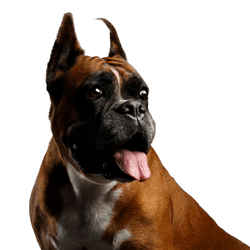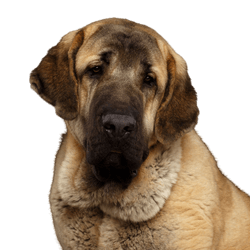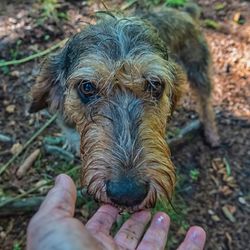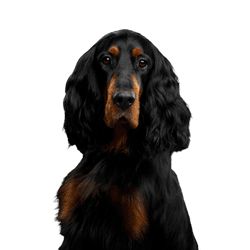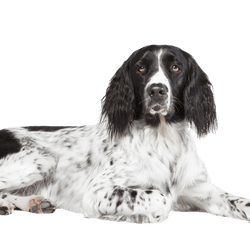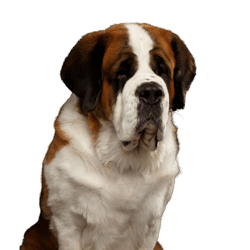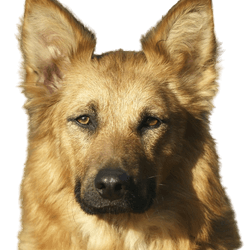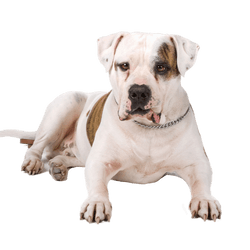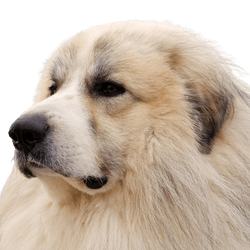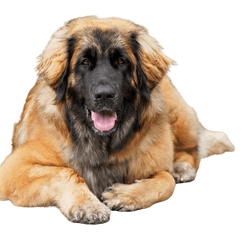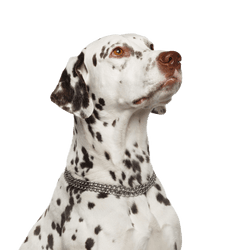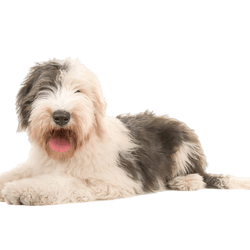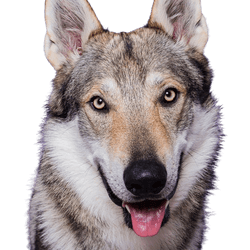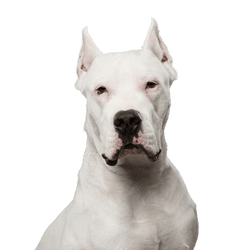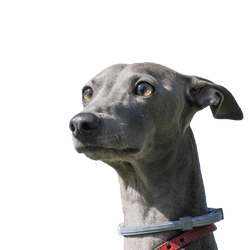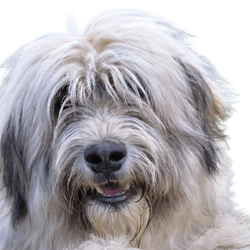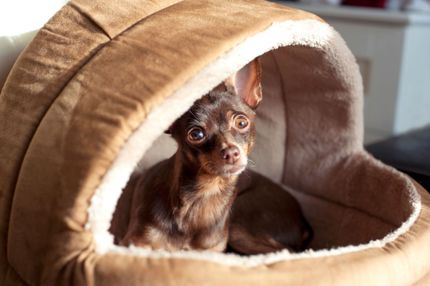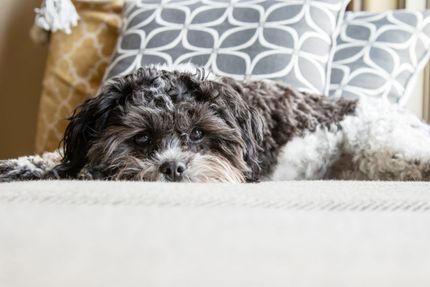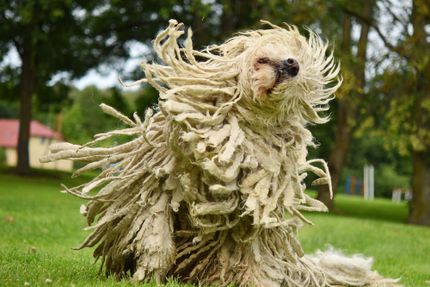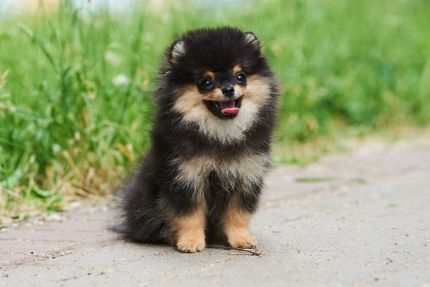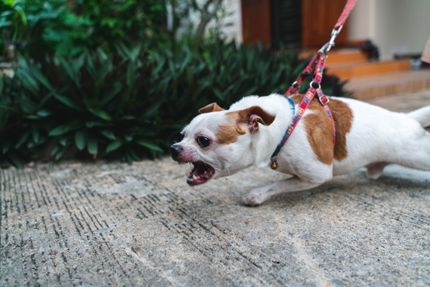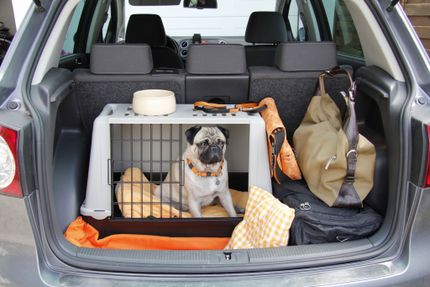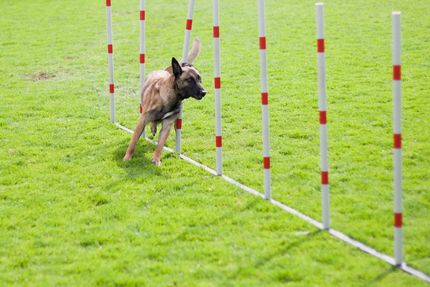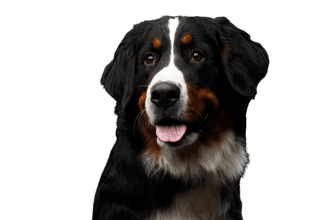
Bernese Mountain Dog Breed description: Character & Co
Bernese Mountain Dog
Facts & Origin
If you are currently debating whether to buy a Bernese Mountain Dog, you will find a lot of important information about this dog breed in the list below. If you are thinking about a Bernese Mountain Dog puppy, you will certainly be able to find out more about Bernese Mountain Dog breeding as well as breeders in your area on our platform. An outdated name for this mountain dog from Switzerland is 'Dürrbächler'.
What is the origin of the Bernese Mountain Dog?
The Bernese Mountain Dog originates in Switzerland, in the village of Dürrbach. This is a small village in Switzerland. Therefore this breed of dog was called Dürrbächler to begin with. However, these dogs soon became very popular outside this village and its surrounding area. After a dog show in Berlin in 1907, the dog breed was renamed after the Swiss canton of Berne to 'Berner Sennenhund'.
What are the breed characteristics of the Bernese Mountain Dog?
Bernese Mountain Dogs are very big and well-suited as family dogs, even though they were originally used as rescue dogs, tracking dogs, herding dogs for sheep and even as draft dogs for small carts.
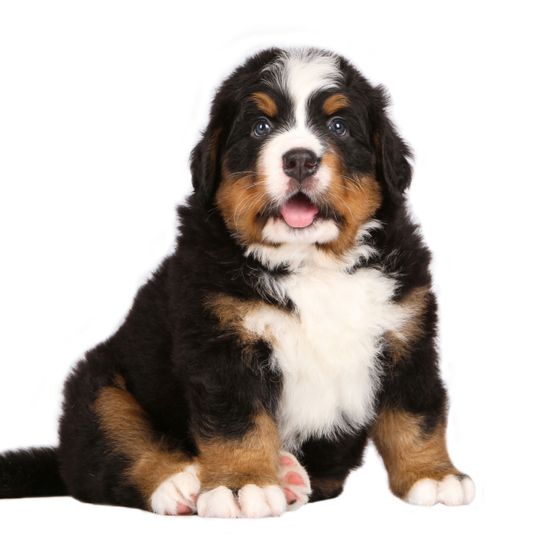

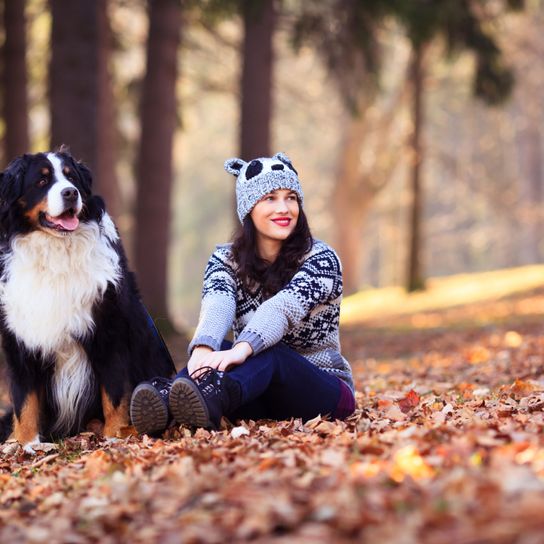
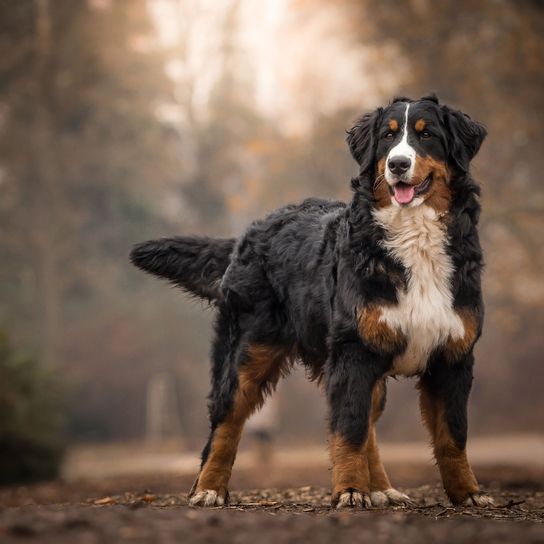
| Alternate Name | Dürrbächler |
| Origin | Switzerland |
| Life expectancy | 6 - 8 years |
| Care requirements | high-maintenance |
| Activity level | average |
| FCI group | Swiss Mountain- and Cattledogs |
| AKC group | working group |
| KC group | working group |
Bernese Mountain Dog mixes
Attitude, character and temperament of the breed
The Bernese Mountain Dog is well suited as a
- family dog
- rescue dog
- tracking dog
- herding dog
- draft dog
What are the typical character traits of the Bernese Mountain Dog?
The Bernese Mountain Dog is affectionate and loyal and extremely tranquil. They get attached very closely to the people they feel they belong to, including you. They will always be a little reserved towards strangers. This breed of dog is particularly calm and relaxed. The Bernese Mountain Dog loves to learn and is extremely attentive when you want to teach them something new.
Typical characteristics of this dog breed are
| loyal | tranquil
|
| able to build strong relationsships
|
quiet |
| eager to learn | reserved |
Character
Usage
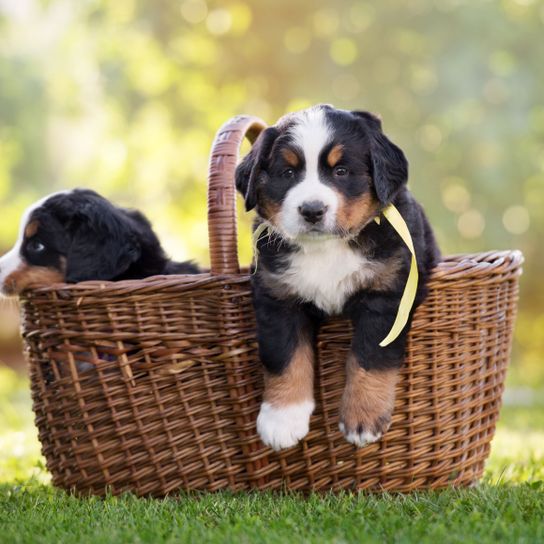
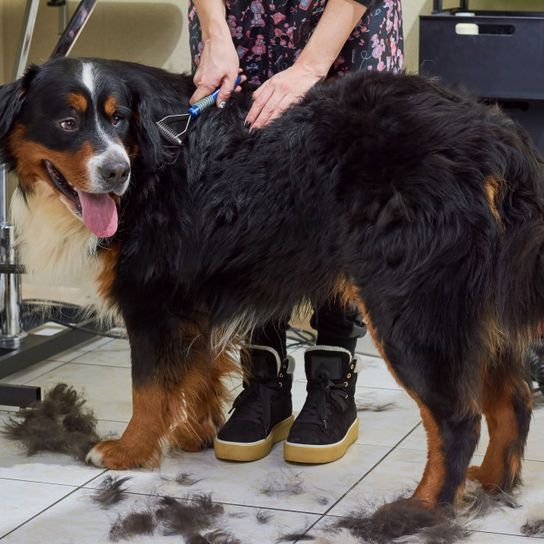
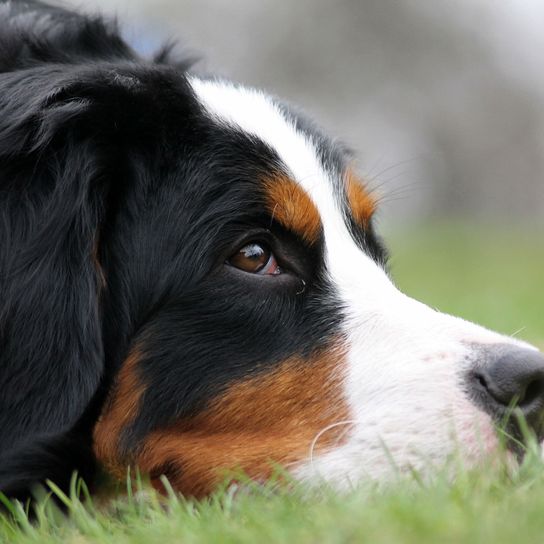
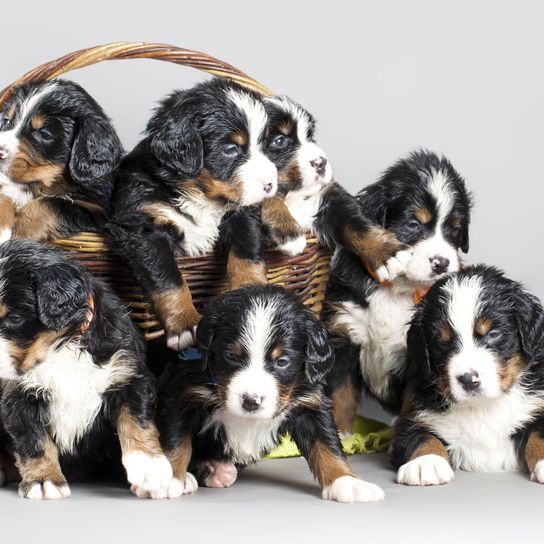

Health and breeding information
What are typical diseases of the Bernese Mountain Dogs?
Depending on the breed, Bernese Mountain Dogs tend to suffer from
- hip joint dysplasia,
- elbow dysplasia, but also
- cancer diseases and
- kidney disease.
If you want to buy a Bernese Mountain Dog, of course this does not have to apply to the Bernese Mountain Dog puppy you choose. It makes sense, however, to ask the breeder of your choice about their Bernese Mountain Dog breeding and possible pre-existing conditions.
What should be considered when breeding Bernese Mountain Dogs?
If you would like to breed this dog breed yourself, it is definitely advisable to use only healthy dogs for breeding, considering the above mentioned risks for certain diseases. Only if all breeders adhere to this rule will it be possible that all breed-related diseases of the Bernese Mountain Dog will become less common over time.
One aspect you should know when breeding Bernese Mountain Dogs is the number of puppies a bitch can give birth to. The biggest known litter of a Bernese Mountain Dog was 15 puppies at a time. This dog breed is therefore characterised by a particularly large number of puppies per litter. Even if it can be different in your breeding, you should be prepared that you should be able to find a buyer for each of these puppies later on. It can be helpful to stay in contact to potential buyers when considering breeding this kind of dog. A Bernese Mountain Dog puppy costs about 1300 Euro.


Appearance and coat of the Bernese Mountain Dog
The Bernese Mountain Dog has long, silky and dense fur. Their coat colour is generally black, white and brown. Head and back are always black, chest and belly are white. Their paws are also white and all Bernese Mountain Dogs also have white markings on their faces. The brown coat covers their eyes, muzzle, legs and often the parts around their white chest.
As this is a dog breed with a very long and dense coat, a few more important tips for grooming.
- The Bernese Mountain Dog is not sensitive to the cold.
- When it is hot, the Bernese Mountain Dog needs a shady place and lots of water.
- The Bernese Mountain Dog sheds hair all year round.
- Dürrbächler must be groomed often and thoroughly.
The Bernese Mountain Dog is not sensitive to the cold at all, but they are sensitive to heat. When it is hot outside, these dogs need a lot of shade and you must also make sure that they drink a lot of fresh water.
Their dense and long coat must be groomed very often and thoroughly, so that it does not become matted. You have to take your time when you make the decision whether to chose a Bernese Mountain Dog as your family dog. The Bernese Mountain Dog sheds a lot of hair all year round, which you should be aware of to begin with.
What is the average size of the Bernese Mountain Dog?
The Bernese Mountain Dog reaches a height of 58 to 70 cm measured at the withers and is therefore considered a very large breed of dog.
How much does a Bernese Mountain Dog weigh?
Bernese Mountain Dogs are large and heavy dogs and weigh 36 to 50 kg on average.
What is the average lifespan of the Bernese Mountain Dog?
The average life expectancy of the Bernese Mountain Dog is 6 to 9 years. The fact that the average life expectancy is so low with this dog breed has to do with its size on the one hand, because large dogs unfortunately never grow as old as small ones. On the other hand it also has to do with the fact that there are unfortunately still some typical hereditary diseases that are breed related. These are described in more detail in the next paragraph.
| Fur length | medium |
| Fur | flat coated |
| Ear shape | Floppy Ear |
| Tail | fanned out |
| Anatomy | massive, hefty |
| Size ♀ | 58 - 66 cm |
| Weight ♀ | 36 - 48 kg |
| Size ♂ | 64 - 70 cm |
| Weight ♂ | 38 - 50 kg |
| Suitable For | Children |
Colors
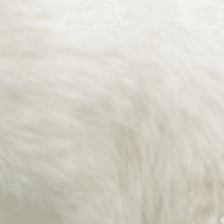

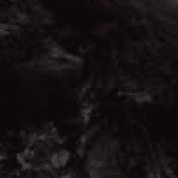




Known Diseases
Hip dysplasia (HD)
The hip dysplasia or hip joint dysplasia of the dog (HD) is a maldevelopment of the hip joint.
Cancer
May be common in older dogs.
Kidney disease
Symptoms of kidney disease in dogs: increased urination (polyuria) increased water intake. Inflammation of the mucous membrane of the mouth. Loss of appetite
Overweight
Often, unfortunately, the dogs very much under excess weight. But the dogs themselves are never to blame!
FAQ
-
A puppy costs about 2500 Euro.
-
On average, you should spend 2-3 hours a day outdoors with a Bernese Mountain Dog. Of course, there is always room for improvement. There is rarely too much. In addition, there is mental exercise at home with intelligence toys and search / retrieve games.
-
The oldest Bernese Mountain Dog in the world was named Penny and lived to be 25 years old.
-
Bernese Mountain Dog is written like this: Bernese (because it comes from Bern - city in Switzerland) and Sennenhund (species / genus of the animal). Sometimes you could think it is one name. But in fact it is two parts. Bernese Mountain Dog. There are also other mountain dogs. They are called Swiss Mountain and Cattle Dogs.
Sources and relevant links
Offizielle Seite des FCI
Accessed on 16.01.2023
Gabriele Lehari (2004). Ulmers Großes Lexikon der Hunderassen. Ulmer.
Horst Hegewald-Kawich (2015). Hunderassen von A bis Z: Über 200 beliebte Rassen aus aller Welt. Gräfe und Unzer Verlag.
Verein für Schweizer Sennenhunde Österreich
Accessed on 16.01.2023
Embark
Accessed on 24.01.2023
Other large dogs
Useful Articles
You can find articles that might interest you in the dogbible blog to match your favorite breed.
Visit our magazineto stay up to date on dog trends.
To find out more, view our Privacy Policy
Find here the breed that suits you and find out what character traits it has. Here you can also learn more about the origin, size and weight of your favorite breeds.
Matching your favorite breed, you'll find articles that might interest you on the dogbible dog blog.
5 tips for removing the undercoat of a dog
Leaving your dog alone - how do you teach him to do that?





